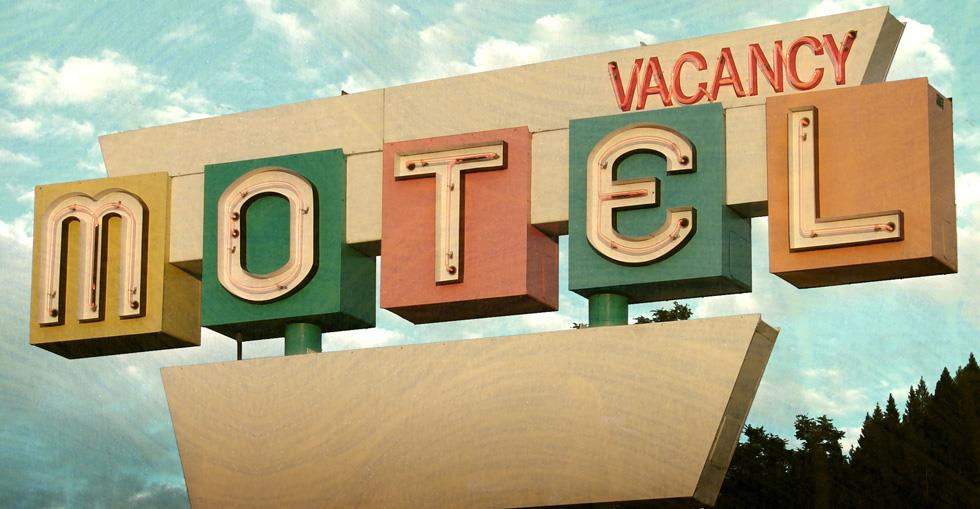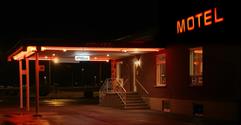Outside the hospitality industry, it’s not uncommon for Americans to freely use the terms “hotel” and “motel” interchangeably.
Some people might realize there’s a difference, but not really understand what those differences are.
While this isn’t one of those situations that occupies the average person’s thoughts for more than a split second, anyone interested in starting or buying a hospitality business definitely needs to understand and appreciate the differences between hotels and motels.
What hotels and motels have in common
It’s actually easier to consider what hotels and motels have in common than it is to discuss their differences, so let’s start there.
Both hotels and motels offer:
- A private room of some kind where you can stay overnight
- A private bathroom
- Clean linens and an (arguably) comfortable bed for sleeping in
- Heating/cooling for the room that you can control
- (Usually) a television, clock, coffee maker, and other very basic appliances/furnishings you can use while you’re there
Whether you choose to stay at a hotel or a motel, you should be able to expect all of the above is provided for you in exchange for the price of your stay.
While most hotels and motels rent their rooms by the night, some motels even offer hourly rentals. Other hotels and motels are also designed for long-term stay and may offer weekly or monthly rates as well.
Beyond this list of basics, the differences between the two businesses become clear:
The building
Although there are thousands of variations, the basic building size, construction, and layout of the average hotel differs from the average motel.
Hotels tend to be large, multistory buildings containing many individual guest rooms lined up along internal hallways, with elevators and stairwells connecting them to each other and to the rest of the building.
Motels are usually smaller, being just one or two stories tall, with rooms built around a central parking lot and connected by outdoor walkways rather than an interior hall. Since they’re rarely taller than two stories, they may not have elevators installed.
These basic design differences stem from the fact that hotels are traditionally used for multi-night stays by a wide range of guests, from business people to families on vacation. Motels - or, “motorist’s hotels” - traditionally cater to the traveling motorist who’s looking for a quick, inexpensive place to rest while traveling.
There’s certainly no law in place that makes these uses a requirement, but it helps explain the structural difference.
The services and amenities
Again, there’s a lot of room for flexibility and overlap in this area - especially as hotels seek to accommodate guests looking for less expensive options and motels seek to attract guests seeking more than the basic roof and a bed - but the following general differences still apply in most cases.
Hotels tend to offer a much wider range of amenities services to guests than their motel counterparts. These can include any or all of the following:
- On-site restaurant with room service
- A substantial free breakfast
- Fitness facilities
- Swimming pool (likely indoor)
- Concierge service
- Bellhops to help with luggage
- Spa/beauty treatments in a spa
- Access to conference rooms or other business amenities
The more luxurious (and expensive) a hotel is, the more likely it is to have all of the above and more available for guests.
Motels tend to maintain a basic array of services with very few amenities. They’re unlikely to have a restaurant on the premises, and unlikely to provide a substantial free breakfast, although coffee and cookies in the front office isn’t uncommon.
While quite a few motels have a swimming pool available, it’s usually outside, which limits its use seasonally and feels less comfortable to some. Facilities like a spa or fitness center are also unlikely to be available at a motel.
The staff at a motel is likely to include just a manager, front desk clerk (often the manager themself) and a small housekeeping/maintenance staff, as opposed to the large, varied staff required to handle all the various services provided by a hotel.
That all being said, these aren’t hard and fast rules. In fact, many traditional hotels have adjusted their service and amenity offerings in order to appeal to a guests on a tighter budget.
Likewise, some upscale, high-end motels have popped up offering hotel-like amenities for the casual traveler.
An excellent example of the latter is the Ace Hotel and Swim Club in Palm Springs, California. Although technically a motel (by design) this previously rundown roadside stop has been completely renovated inside and out with all the luxuries, services, and events you’d expect at a four-star hotel.
Other great examples can be found up and down the west coast and the trend is catching on elsewhere too.
The price
Based on the differences described above, it should come as no shock that motels and hotels traditionally differ significantly in price for a one-night stay.
While motel nightly rates generally range between $30 and $80, staying fairly consistent across the country, hotel rates generally start at $100 and can go up steeply based on geographic location, proximity to various tourist attractions, and the level of service or perceived luxury the establishment enjoys.
It’s not uncommon for upscale luxury hotels in popular urban tourist locations like Boston or New York City to cost several hundred dollars or even more than one thousands dollars per night.
Of course, to a large extent, you get what you pay for. So if you intend to take full advantage of the services and amenities a hotel offers rather than just collapsing into your bed and leaving immediately the next morning, the higher price is likely to be worth it.
Cost of starting or buying a hotel or motel
It’s also easy to understand why it generally costs far more to buy or build a hotel than it takes to buy or build a motel.
While starting and running a hotel can be a huge undertaking with initial investments numbering in the millions, starting and running a motel fits nicely into the small business category many would-be entrepreneurs envision when they consider entering the hospitality industry.
With its small staff, basic services, and scaled-down guest expectations, many business owners have successfully opened motels and earned a healthy profit within months.
Hotel owners, on the other hand, tend to work in tandem with a group of investors, corporate board, and a large, bureaucratic organization in order to keep all the parts in motion. As a result, there’s more that can potentially go wrong, and more inherent risk to the entrepreneur - if only because there’s far more money at stake.
That being said, hotel owners as a group are consistently among the most affluent business owners in the United States, President Donald Trump being a foremost example of the income potential the hotel business offers.
Which should you go with?
Obviously, if you’re considering starting or buying a business in the hospitality industry, the differences highlighted in this article are just a small jumping-off point for what will no doubt be a tremendous amount of research and decision making.
But it’s important to realize up front that both hotels and motels can be the fulfillment of the American Dream, and both can end up very successful. The final difference between them is your definition of success and where you want to see your entrepreneurial efforts taking you in the future.
As you continue to explore, make a note of the hotels and motels available for sale on BusinessesForSale.com to ground your research in reality and start narrowing down your wants and needs.



